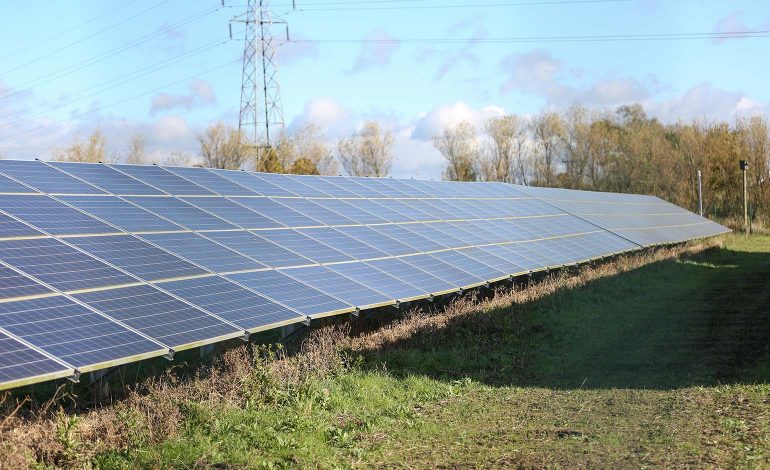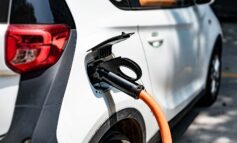More than 100 football pitches’ worth of solar panels will need to be installed for Bath and North East Somerset to be carbon neutral by 2030.

A £50,000 report by council officers says wind turbines, mass tree planting and cutting car use by a quarter will all be needed to hit the target.
Like many bodies across the country, the authority has declared a climate emergency and says a fundamental culture shift is required for it to rise to the challenge.
Corporate sustainability manager Jane Wildblood says in the report the council should focus on:
- Making buildings energy-efficient – buildings currently account for two-thirds of the area’s carbon footprint but this could be reduced by retrofitting insulation and “super glazing”, and swapping from gas heating and cookers to electric;
- Leading a major shift to mass transport, walking and cycling – cutting car and van use by a quarter by 2030, a 76 per cent switch to electric vehicles and full electrification of passenger rail.
- A rapid and large-scale increase in local renewable energy generation – half of existing homes installing a solar roof, another 116 football pitches’ worth of solar panels on commercial roof space and ground-mounted sites, plus 28 wind turbines. The report does not specify where they would be installed.
The council also needs to find ways to increase carbon absorption by the natural environment.
It will work with farmers and landowners to promote tree planting, boosting local food production and biodiversity, and increasing flood defences as the climate changes.
The authority has spent £49,000 of a £100,000 budget for the work so far this year. Officers said there could be significant impacts on future budgets, depending on the next steps the council takes.
Councillor Sarah Warren, cabinet member for climate emergency said: “We have acted quickly on the climate emergency the council declared earlier this year and this report provides us with the information we need to take the next steps required.
“There is a huge amount of detailed work to do but whichever way we look at it we will need to make it possible to significantly reduce the number of miles we travel by private car; we will need to massively invest in our homes to make them more energy efficient; and we will need to decarbonise our electricity supply, with renewable energy such as solar and wind.
“The good news is when we finally achieve this, our journeys to work will be less stressful, our travel will be healthier, our homes will be warmer and cheaper to run and our energy will come from renewable sources.
“I know from talking to local campaigners, both young and old, they want to see rapid action, and to get involved in a practical way.
“I think people are starting to appreciate the transformation facing us, and the sometimes difficult choices and trade-offs ahead. However, I know we can do this.
“Over recent months I’ve been talking to residents across our area. From these conversations, and the work that is already going in our communities, I am certain we can work together.
“Rather than blaming the individual, it is important that we engage communities and tackle these issues systematically.”
Councillors will consider the climate emergency report when they meet on 10th October.
Stephen Sumner, Local Democracy Reporter



